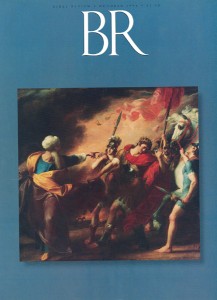Moving Beyond Masculine Metaphors
The holy God is beyond all our categories, including gender distinctions of masculine or feminine.

A great furor has arisen over the Re-imagining Conferencededicated to reconsidering the ways we image or conceptualize Godheld in Minneapolis in November 1993. Gathered together from various religious bodies, women were encouraged to reflect on womens experience and to use feminine imagery when speaking of God. While many participants found the conference stimulating, they have since been accused of ridiculing Christianity and of replacing it with goddess-worship.1
Appealing to such biblical books as Proverbs, where Wisdom (Hebrew hokmah) is personified as a woman, conference delegates addressed God as Sophia, the Greek word for Wisdom. In the first part of the Book of Proverbs (chapters 19), those who seek wisdom are invited to choose between two women: the Strange Woman, who attempts to seduce people to follow her foolish and destructive ways, and the Wisdom Woman, who entices people to pursue ways leading to peace and joy. Wisdomwho is a prophetess like Miriam (Exodus 15:20), Deborah (Judges 4:4) and Huldah (2 Kings 22:14)is portrayed standing in the marketplace, summoning people to mend their ways or face the consequences (Proverbs 1:2033).
Already a library member? Log in here.
Institution user? Log in with your IP address.

